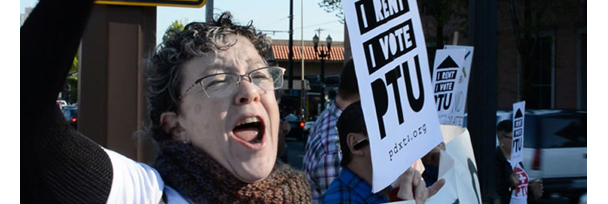“as fascinating to watch as it is devastating
to comprehend” — Portland Mercury
“Swart’s powerful documentary should be
required viewinG” — Willamette Week
WHEN HOME LEAVES YOU
Exploring the complexities and contradictions of gentrification, Priced Out (2017) is a heartbreaking vision of the history of housing discrimination in the nation’s whitest city, and the personal impact it has had on residents.
The film is a sequel to the 2002 documentary “NorthEast Passage: The Inner City and the American Dream.”
Stream ON YOUTUBE, Itunes, Google Play, and Amazon
Got a library card? WATCH Priced Out FREE on Kanopy
Institutional DVD, DigitaL, Screening kits
SCREENING and DiscussioNS Schedule
UPDATE: Portland passes historic new reforms to fight renter discrimination
Long Beach, Calif. Passes Portland-Style housing reforms, following Priced Out impact Campaign.
Check Out the Priced Out Podcast
With
Andru and Cornelius.
Get Involved Here
Check out our friends working on Priced Out: The Animated Series.
A project in partnership with Northwest Documentary Arts & Media
Revitalization, Gentrification and A Housing Crisis
In the late 1990s, Nikki Williams, a single mother living in the only “ghetto” in Portland, Oregon, embraced the idea of gentrification. At that time, her black neighborhood was dominated by abandoned buildings and fear of drug dealers.
Fifteen years later, Nikki was one of the last black residents on her block, as high-end restaurants and throngs of young white newcomers came to dominate the area. While some black residents said good riddance to the old neighborhood, others felt betrayed by city officials who had promised revitalization without displacement.
But gentrification eventually grew beyond Nikki's neighborhood and plunged the entire city into a housing crisis. Torn between mourning the loss of her community and grabbing the chance to sell her home, Nikki had to decide what to do as gentrification rolled across the nation’s whitest city.
Meet Nikki Williams
Williams is a straight-talking single mom who does not suffer fools gladly. Her only wish was to live in a healthy black community. In the documentary NorthEast Passage, filmed in the late 1990s, Nikki worked to kick drug dealers off her block and fight a subsidized housing project on her street. She welcomed gentrification. Over a decade later, she realized she was one of the last black people on her street.
In 2002, NorthEast Passage chronicled a neighborhood besieged by disinvestment and drugs. Over a decade later, the sequel, Priced Out, offers a complex view of gentrification rarely seen in conventional media coverage.
NEIGHBORHOODS RENEWED AND COMMUNITIES DESTROYED
Gentrification, once a phenomenon that occurred only in big cities like New York, is now sweeping through cities across the country from Tacoma to Toronto, Minneapolis to Memphis.
Over the last decade, urban neighborhoods once shunned by suburbanites have transformed into some of the most desirable places in the country. But these new investments are just the latest chapter in a long history of institutional discrimination that has sought to isolate and exclude minorities. Communities once devastated by redlining, urban renewal, and drugs are now being crushed by market forces as big business moves in and longtime residents get priced out. Not all change is bad. But as central city neighborhoods continues to change all across the nation, more and more poor, working and middle class residents of all colors and backgrounds are finding themselves priced out of the inner city and the American Dream.












